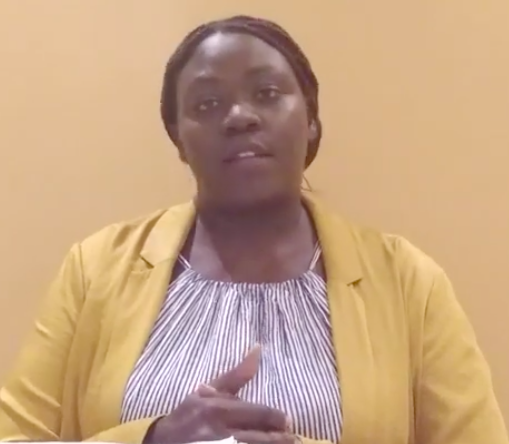By The Rwandan Lawyer
Introduction
In Rwanda, the criminalization of political statements hostile to the regime is on the rise. Declaring to the public what does not work becomes a crime when it should wake up the authorities to redouble their efforts to better serve the population and manage public affairs well. This article deals with the analysis of the charges against Idamange Iryamugwiza Yvonne in pre-trial detention and whose trial is pending before the chamber of the high court responsible for international and cross-border crimes.
1.Charges
Idamange Iryamugwiza Yvonne is accused of inciting public disorder, resisting legal arrest and aggravated assault against a law enforcement officer. Using media platforms, the 42-year-old is said to have “exhibited behavior that mixes politics, crime and madness”. Prior to his arrest, Idamange had used his YouTube to call for protests against the president, urging would-be protesters to carry Bibles.
Article 204 of the Penal Code states that any person who publicly, either by speech, writings of any kind, images or symbols, whether displayed, distributed, bought or sold, or published in any way whatsoever either, incites the population to reject the established government, or which provokes an uprising in the population with the intention of inciting the citizens against each other or disturbs the population with the intention of causing unrest in the Republic of Rwanda commits an offense.
If convicted, he is liable to imprisonment for not less than 10 years and not more than 15 years.
Rwanda National Police said investigations into the alleged crimes are ongoing.
2.From facts to law
1) Facts
On his Youtube blog, Idamange Iryamugwiza Yvonne had targeted the various crimes that the regime committed against the various survivors of the genocide such as Kabera Assiel, Mucyo Jean de Dieu; Rwigara Assinapol; Kizito Mihigo; arbitrary arrests; politicized judgments; expropriations unjust without compensation which prejudiced people residing at Kangondo; Bannyahe; areas of the Kigali city nearing swamps; the marketing of the genocide; the mistreatment of the bodies of genocide victims criticizing the fact of displaying them in memorials instead of handing them over to their families.
2) A controversial legal qualification
All of these opinions can be seen as criticisms of a political opponent who assesses the weaknesses of the ruling regime in terms of its ability to meet citizens’ expectations. Not all of the elements raised are new to anyone who closely follows RPF policies. and the abuses it exercises on the population in order to safeguard the interests of a few individuals.
Qualifications given to the facts are just fabricated from scratch because they have nothing to do with the facts. First, expressing an opinion contrary to the way in which the relics of genocide victims are handled is not in itself an offense. ; on the other hand, it is an advice that the activist lavishes on the authorities so that they can take into consideration the opinions of the genocide survivor population instead of imposing on them practices which only exacerbate their pain.
In the same vein, it turns out to be inconceivable that a genocide survivor could commit a genocide ideology. In any case, one would wonder her animus nocendi as intentional element because she herself lost her family members in these atrocities.
The charge of mobilizing the population to revolt against power also comes up against the challenge of evaluating the effects that the statements had on the public to such an extent that the latter would rise up against the regime. What the activist Idamange Yvonne said is no longer a secret for none but quite simply she dared to put out what all Rwandans think in silence. It is therefore noteworthy to deduce that this would not push anyone to rise up against the oppressive power of the RPF given that what she voiced out is already known.
All in all, it undoubtedly shows that the investigation and prosecution bodies had to rack their brains following the injunction from above in order to incriminate at all costs the statements of our Idamange Iryamugwiza Yvonne and thus muzzle her.
Conclusion
Rwandan authorities are progressively getting fear of the impact of denunciations of their weak governance and strive to stop media to as preventive measures against any popular reactions.To address the issue, they prefer resorting to the courts by jeopardising their theoretical independence if still any. Rwandan judicial institutions are losing more and more credibility by engaging in the game of politicizing the process and criminalizing any political protest against the regime in power. By improvising there, they automatically violate all the principles guaranteeing the fair process and the good administration of justice enshrined in the various international and regional instruments to which Rwanda is a party. This is also the reason why foreign countries fear this country as regards respect for the fundamental rights of politicians prosecuted before its courts and tribunals.
































































